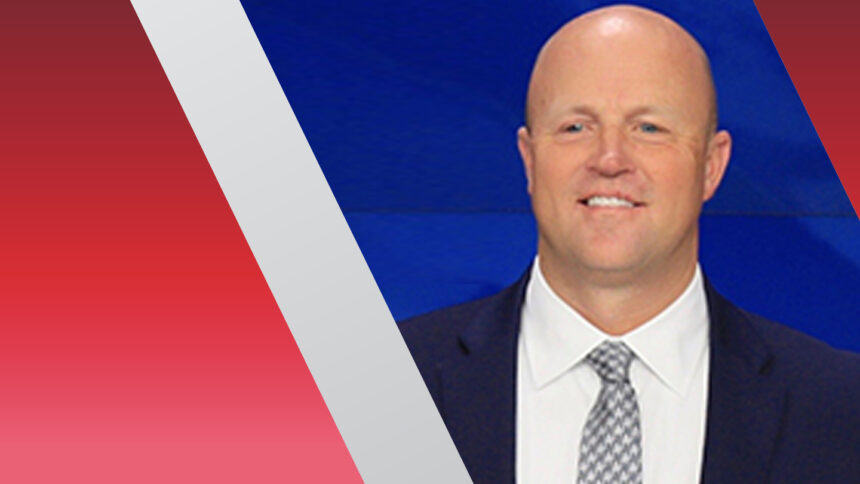
Ensign Group earnings calls in recent years have been proud, cheerful events and Friday’s might have been the most optimistic of them all. The nursing home giant announced third-quarter earnings that exceeded estimates and touted increased future forecasts Friday.
Ensign CEO Barry Port said a good part of the recent success has been the smooth assimilation of 63 recently acquired facilities. Twelve new holdings were brought on in the third quarter and company officers said that portfolio growth would continue in both existing and new states in the months to come.
Ensign currently has 323 mostly skilled nursing operations, 30 of which also include senior living, across 14 states. It operates 92 of the 122 real estate assets it owns, and is considered the largest nursing home operator in the US by some.
Expect even more, and soon.
“Because of overly aggressive real estate deals (by others previously), there are definitely a large amount of distressed opportunities for us,” Chief Investment Officer Chad Keetch and executive vice president said on Friday’s third-quarter earnings call. “Someone overpaid and the rent payments aren’t coming through now and they’re distressed and looking to find a replacement (owner).”
That’s in addition to other prospective sellers who may have firmed up their operations after the exhausting COVID period and are now looking to sell, of which Keetch said there appear to be many.
“You’ll see some growth in the near future in newer markets in states that we haven’t been in for too long, and also even adding some new states,” he noted. “We are expanding the geographical footprint.”
Ensign is relatively new to Tennessee with three buildings but expects to have more there soon, Keetch said. More growth is also expected in South Carolina and “other parts of that part of the country that we’re really excited about.”
The company has more than 60 administrators-in-training to fortify its leadership “bench,” call leaders noted.
Follow the money
Adjusted net income increased 17.7% over the year-previous quarter, while adjusted net earnings per share was $1.39, or 15.8% higher, over that same span.
Meanwhile, occupancy rises were notable: 2.8% on a same-store basis and 4.8% for transitioning facilities.
The former helped record “a new high-water mark” for same-store occupancy, which Port called “especially noteworthy” because it came during a quarter that historically sees seasonally softer occupancies. The company overall has eclipsed its pre-pandemic high of 80.1%, he noted.
Reflecting Ensign’s unabated appetite to pursue higher-needs residents to satisfy hospitals’ needs to hand off “sicker and sicker” patients, skilled care days jumped 6.1% and 17.0%, respectively, in their same-store and transitioning buildings over the past year.
Its big lean into managed care continued and was apparent with rises of 9.1% and 23.2% in related occupancy, resulting in revenues 11.2% and 22.4% higher, respectively. While Port called managed care “a very important and growing part of our business,” Keetch would later discuss the need to keep accountability of Medicare Advantage plans in check.
“As we look ahead, we couldn’t be more excited about the opportunity we have to unlock the enormous upside we see in our existing portfolio,” Port said. Lower-occupancy operations “at very attractive prices” will continue to be acquisition targets, he added.
Deep pockets, little staffing mandate worry
Due to such solid skilled care miss and occupancy gains, the company raised and narrowed its annual 2024 earnings guidance, from between $5.38 to $5.50 per diluted share, to $5.46 to $5.52. The reason for such confidence lies in the 15.1% earnings increase over last year at this point, which also reflects 32.6% growth over the same time in 2022.
The “very healthy pipeline” of potential new building acquisitions that Keetch spoke of is well within reach since the company has more than $1 billion at its disposal for M&A activity, reported Executive Vice President and Chief Financial Officer Suzanne Snapper.
Another bonus, Keetch said, is continually less worry about the federal government’s first-ever nursing home staffing mandate fully kicking in. Some parts of the mandate have already been enacted but its most-feared aspects — the minimum nursing hours per resident day levels, which would cause at least an estimated 80% of all facilities to need to hire more nurses — are not slated to be in effect for two or more years.
“Minimum staffing — we feel pretty confident that’s not going to happen,” Keetch said.
President and COO Spencer Burton noted that “new facilities” make up 14% of the company’s portfolio, up from 8% a year ago.
He held up two with 5-star federal ratings as particularly good examples of progress made, including one that has attacked the staffing-supply challenge head-on.
The Rehabilitation and Nursing Center of the Rockies was acquired Aug. 1, 2023, and has improved occupancy from 63% to 90%. It acquired a CEO and knowledge from nearby “cluster partners” to boost performance. Managed care increased 600% over the same quarter a year earlier.
RNCR also opened its own nurse aide certification program, which has helped turnover “plummet” and fed other neary Ensign facilities.
Burton also held up Peoria Post-Acute and Rehabilitation in Arizona. The 179-bed nursing and sub-acute care campus was acquired in 2018 and has intensified its service offerings, adding ventilator and advanced wound care and bed-side dialysis.
Managed care days have risen by 13% and skilled mix by 44% over the same quarter a year ago. In addition, it has added 51 licensed beds to open a remodeled sub-acute wing and dialysis center that averages 96% occupancy.




